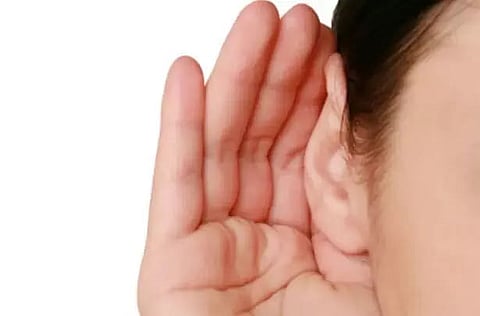
- Home
- Live Blog
- Breaking News
- Top Headlines
- Cities
- NE News
- Sentinel Media
- Sports
- Education
- Jobs

Dr Dhrubajyoti Bora
(The writer can be reached at dhruba40.db@gmail.com)
As we've modernized, the so-called earlier amusement activities that we used to cherish in our old days no longer thrill us. Instead, we opt for newer modalities of recreational activities. Night clubs, discotheques, pubs, bars, cinemas, concerts, sporting events, fitness clubs are some of them, bringing zeal and flavour into our lives. Be these events either boon or bane, the noteworthy factor is that the sound level in these activities quite often exceeds the safety level of our hearing. Unprotected regular participation in these events can jeopardise our hearing permanently.
WHO estimates that billion young people worldwide could be at risk of having hearing loss due to unsafe hearing practices. In this technology-driven world where teenagers and young adults aged from 12-35 yrs are usually allured to such types of events, WHO says that about 50% of them are exposed to unsafe levels of sound from the use of personal audio devices and around 40% of them are exposed to potentially damaging sound levels of discotheques, clubs and bars etc.
Exposure to loud sounds for any length of time causes fatigue of the ears' sensory cells. If it's for a brief period, these sensory cells recover. Otherwise, if for a prolonged period, inevitable permanent hearing loss is for sure.
We hear when a particular sound vibrates our eardrum and that mechanical energy is transmitted to sensory cells of the inner ear to be converted into electrical energy to be perceived by our brain. These sensory cells of the ear can't withstand loud sounds for long, and if it continues, irreversible hearing loss develops.
Now, when a person's hearing is irreversibly damaged, he'll face difficulty in day-to-day communication, and this will be reflected on his social, and personal profile. And for children, the consequences will be even greater. It'll damage their speaking and learning abilities. It'll decrease their reading ability, comprehension, memory, and motivation.
Though the extremely loud sounds like the bomb explosion, or the fire of a rifle causes pain in our ears along with damage to the eardrum, ossicles, and inner ear, those sounds which mightn't become uncomfortable initially can gradually destroy the sensory cells of the ear provided it continues either unrecognized or unchecked for a prolonged period. Sometimes, the initial symptom the individual may feel is tinnitus i.e. the ringing sounds in the ear. Gradually he/she will feel the hearing loss. And neglected at this point by not taking necessary steps to mitigate loud sounds will leave him/ her hearing impaired. Perhaps, most of us have the experience of having muffled hearing or tinnitus for some time after coming out of such a noisy environment. And if we continue it for long, at regular intervals, we'll be the sufferer.
This year, like the previous years, WHO has come up with a unique theme to celebrate World Hearing Day on 3rd March,- To hear for life, listen with care.
Some people are more susceptible to the deleterious effects of loud sounds. Genetic predisposition, chronic conditions like diabetes and exposure to smoke are known to increase the risk of noise-induced hearing loss. As we never know who the most susceptible individuals are, the best way to understand is that prevention is the most practical way.
Safe listening levels depends upon the intensity (loudness), duration (length of time), and frequency (how often). The permissible time for safe listening decreases as the sound level goes up. Eighty-five decibels is considered the highest safe exposure to a maximum daily limit of eight hours. 85dB is a noise or sound level equivalent to that of a food blender, heavy traffic while you're in the car, a noisy restaurant, or a cinema. At nightclubs, discotheques, bars the average sound level ranges from 104 to 112dB. Noise at sporting events has been found to range from 80 to 117dB. Even a short duration of loud sound exposure is harmful. Habitual exposure will certainly lead to hearing loss. Likewise, unchecked listening using headphones in any audio device will have the same effect.
If an individual feels tinnitus or has difficulty in hearing high pitched sounds like doorbells, telephones or alarm clocks, or understanding speech, especially over the telephone, or having difficulty to converse in noisy environments like restaurants or venues for other social gatherings, he/she should immediately get checked by a trained professional.
Teachers and parents should educate their children about safe listening and monitor their exposure to loud sounds.
The individuals frequenting recreational activities should use sound dampening earplugs or earmuffs. A properly fitted earplug can reduce sound exposure by 5-45dB, depending on the type of earplugs. We can set the volume of our audio devices to a comfortable level in a quiet environment to not more than 60% of the maximum volume. Most of our smartphones have a provision that warns us not to raise sound levels beyond a certain limit. Recreational sports should've proper sound limits for their participants. We can limit time spent in noisy activities by having short listening breaks, moving away from loud sounds while in such an event, and limiting daily use of personal audio devices.